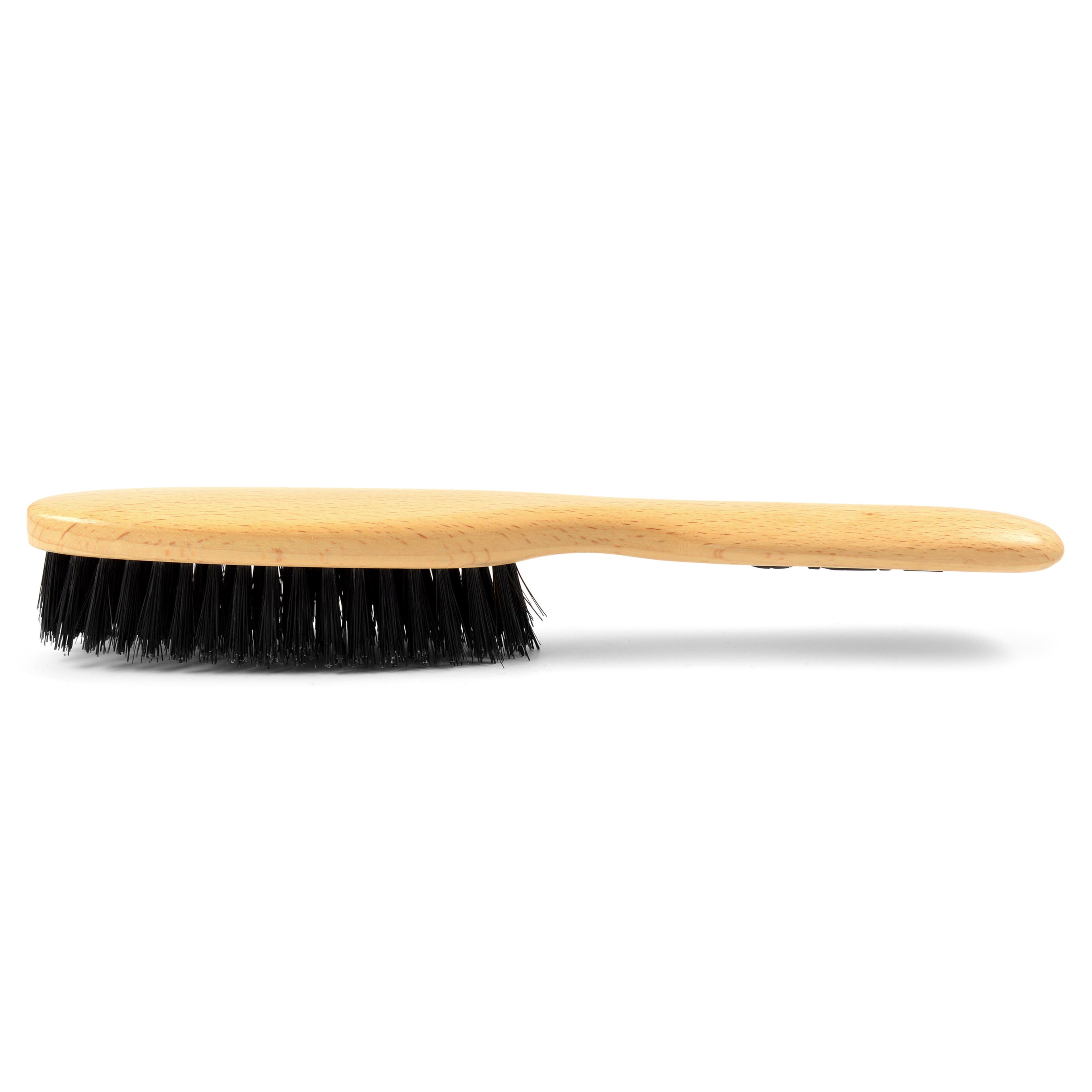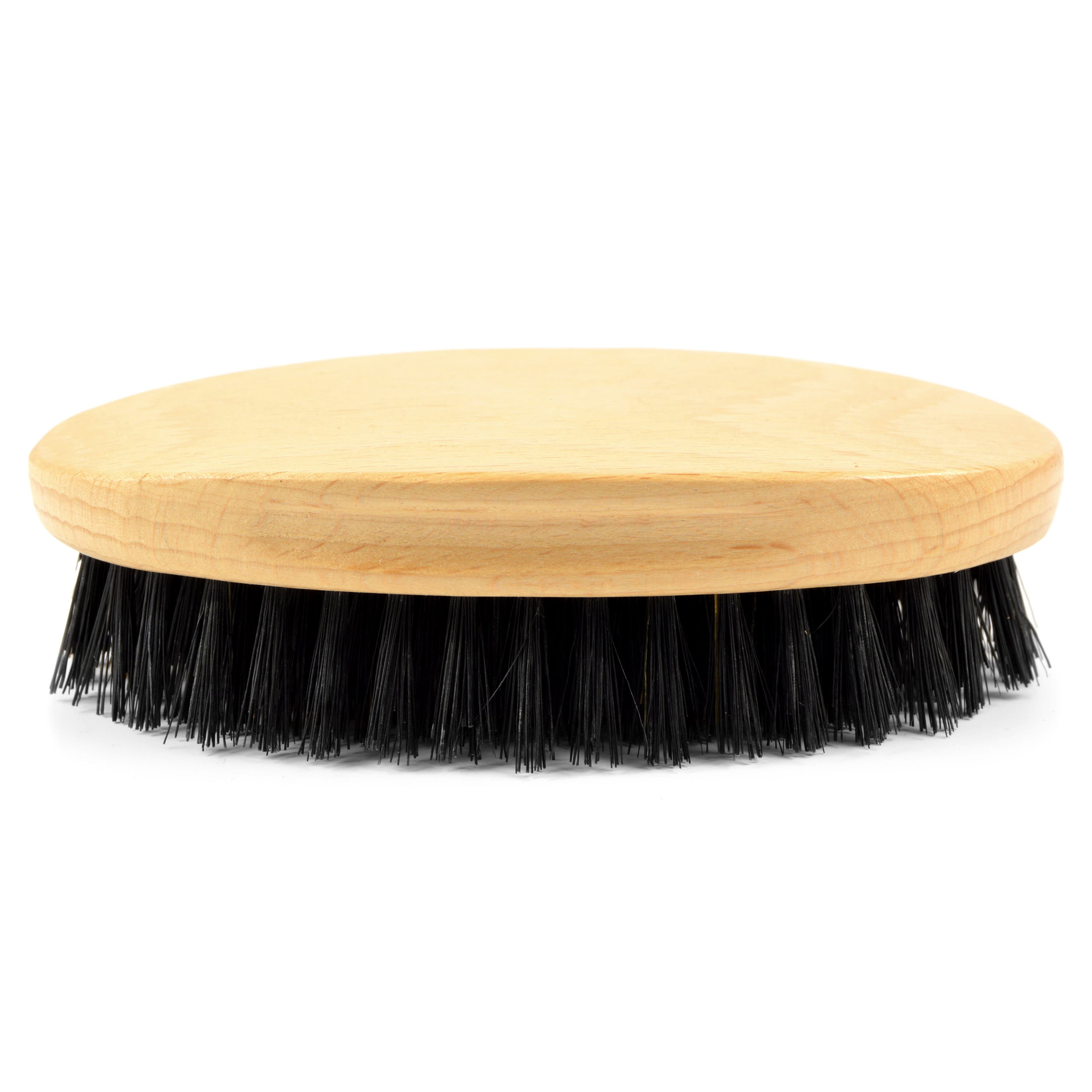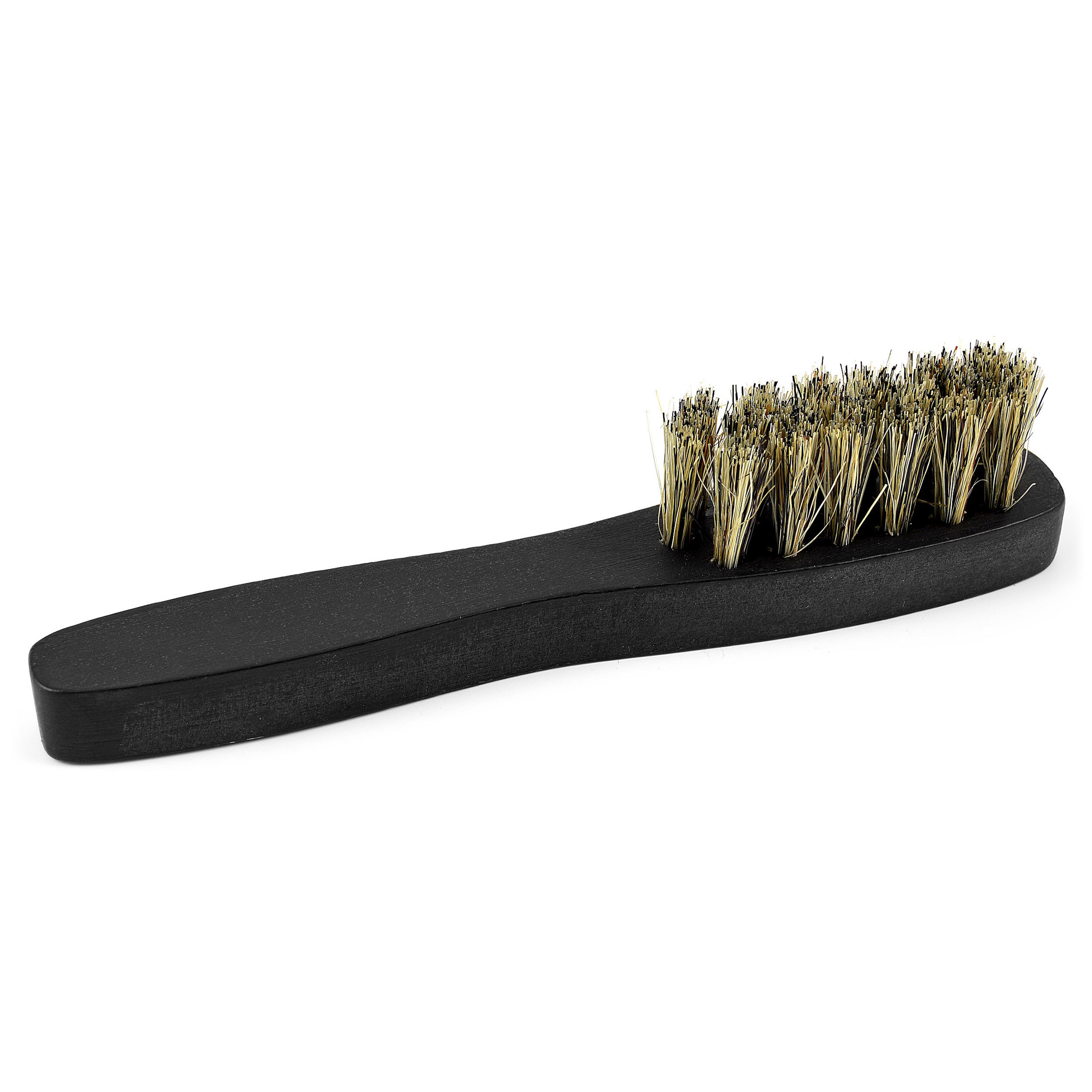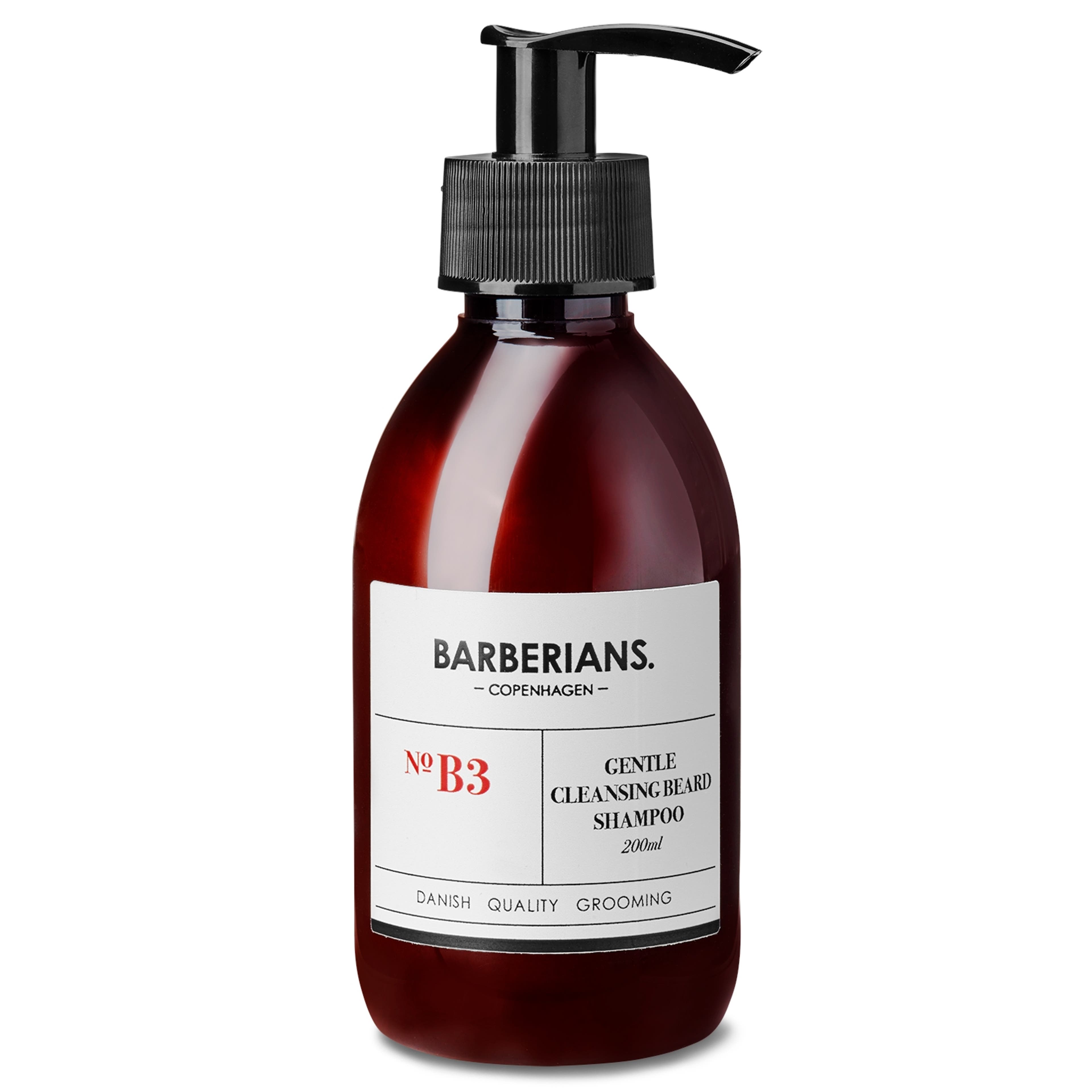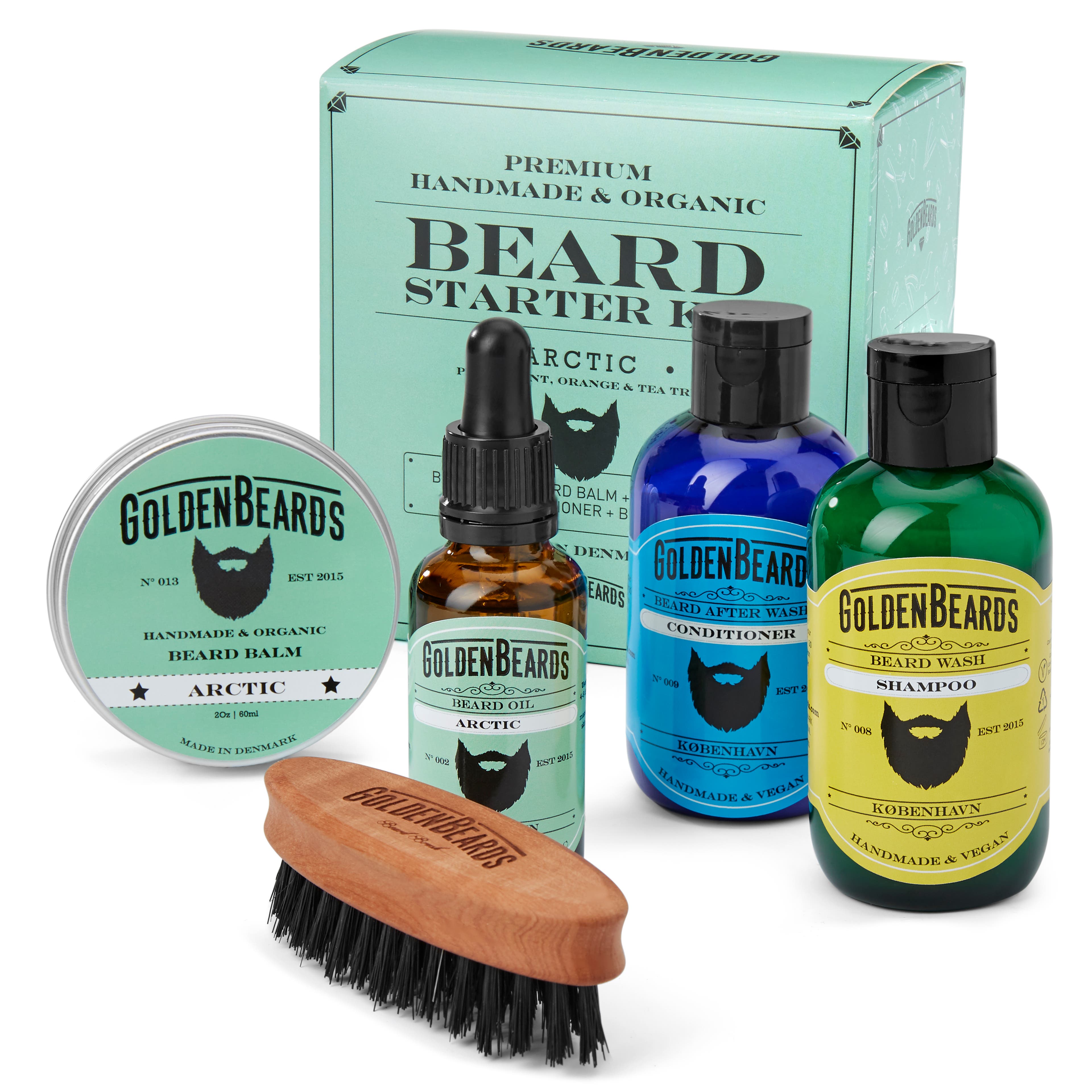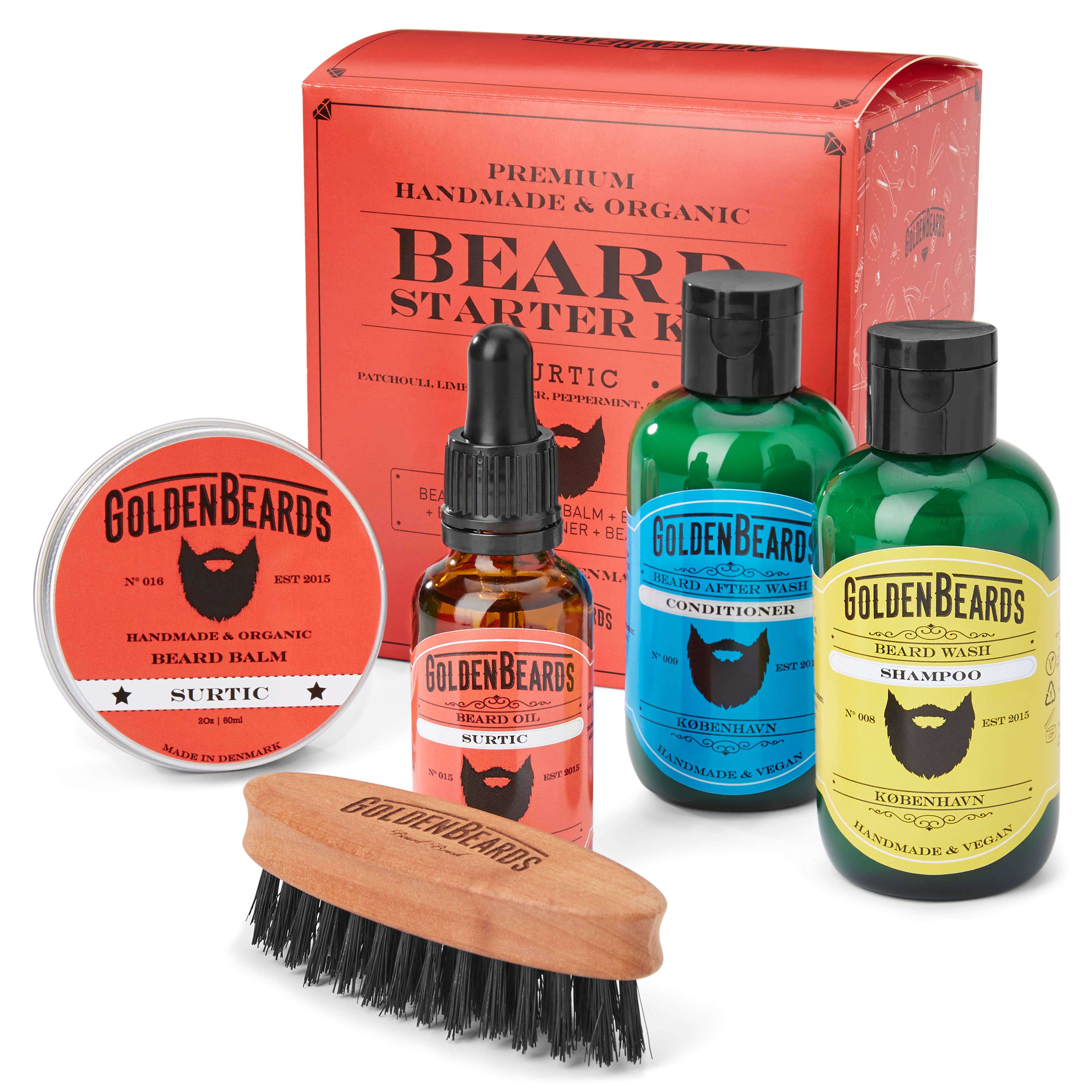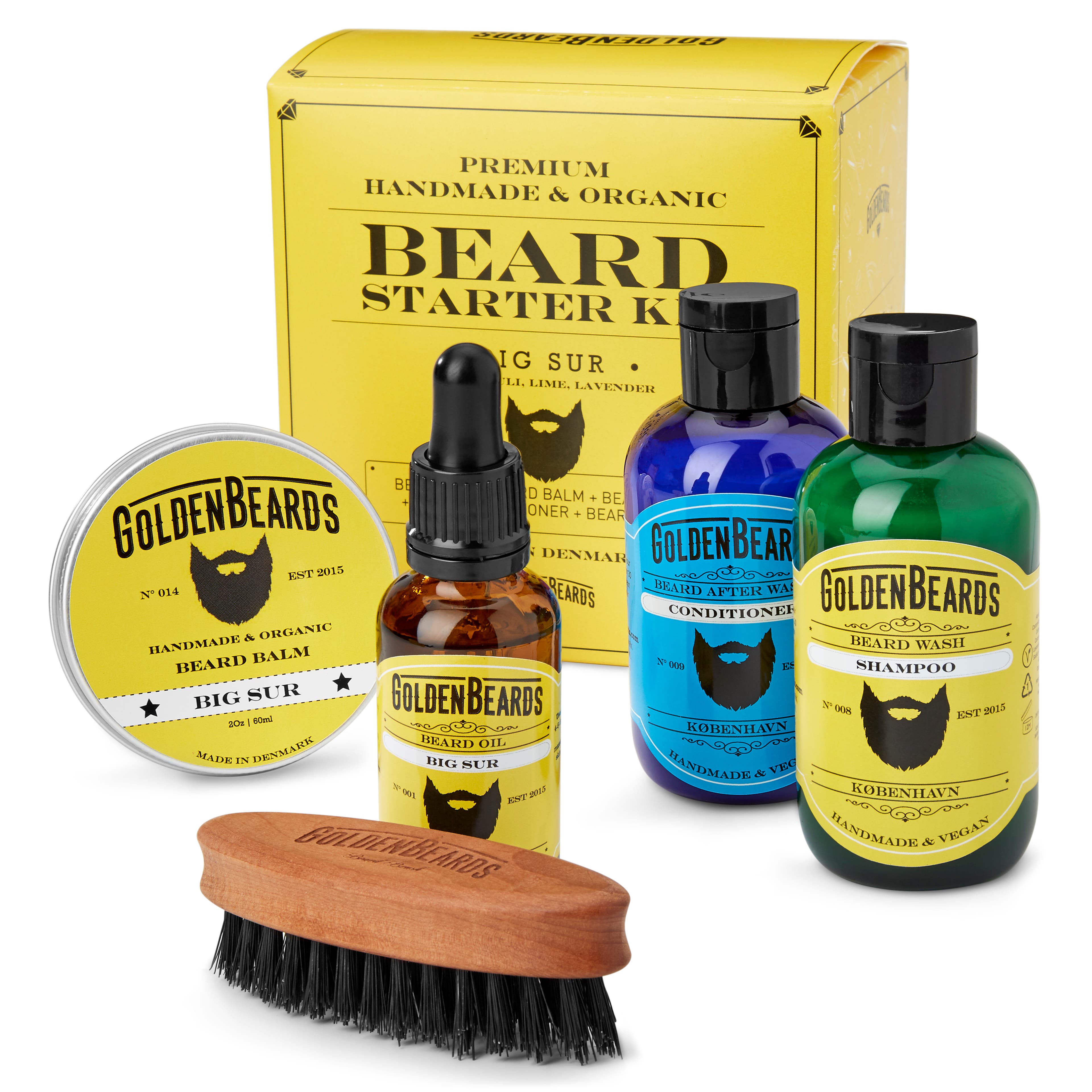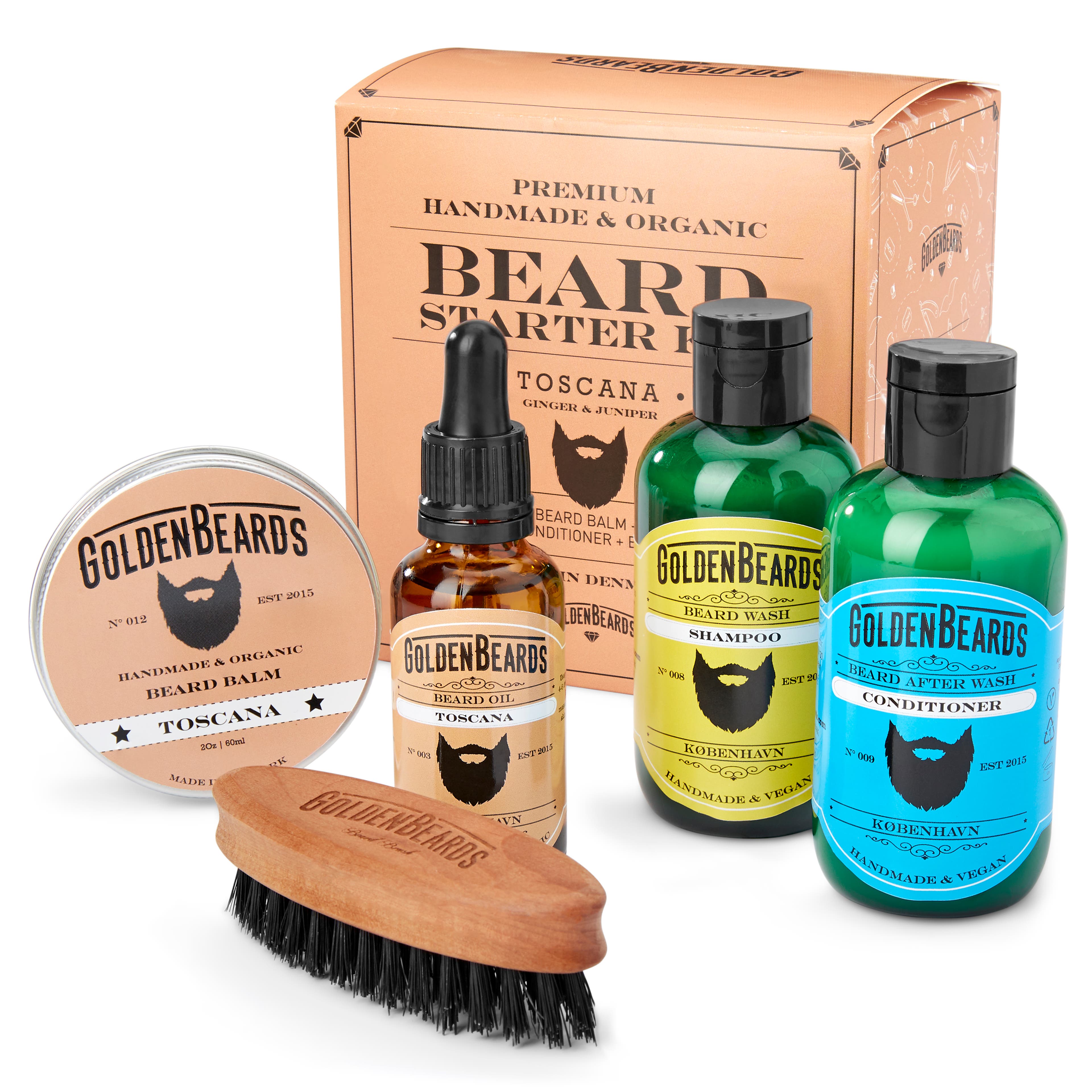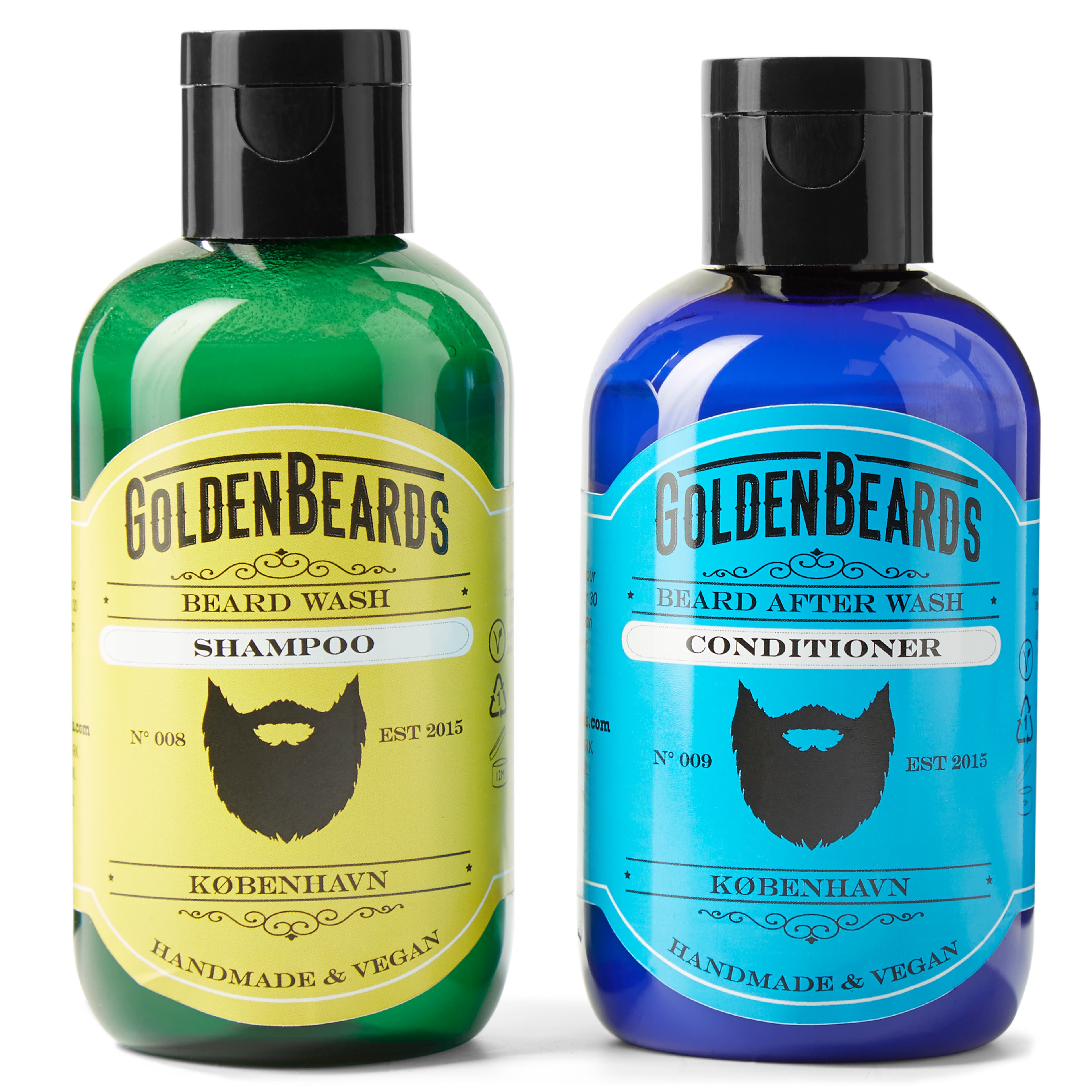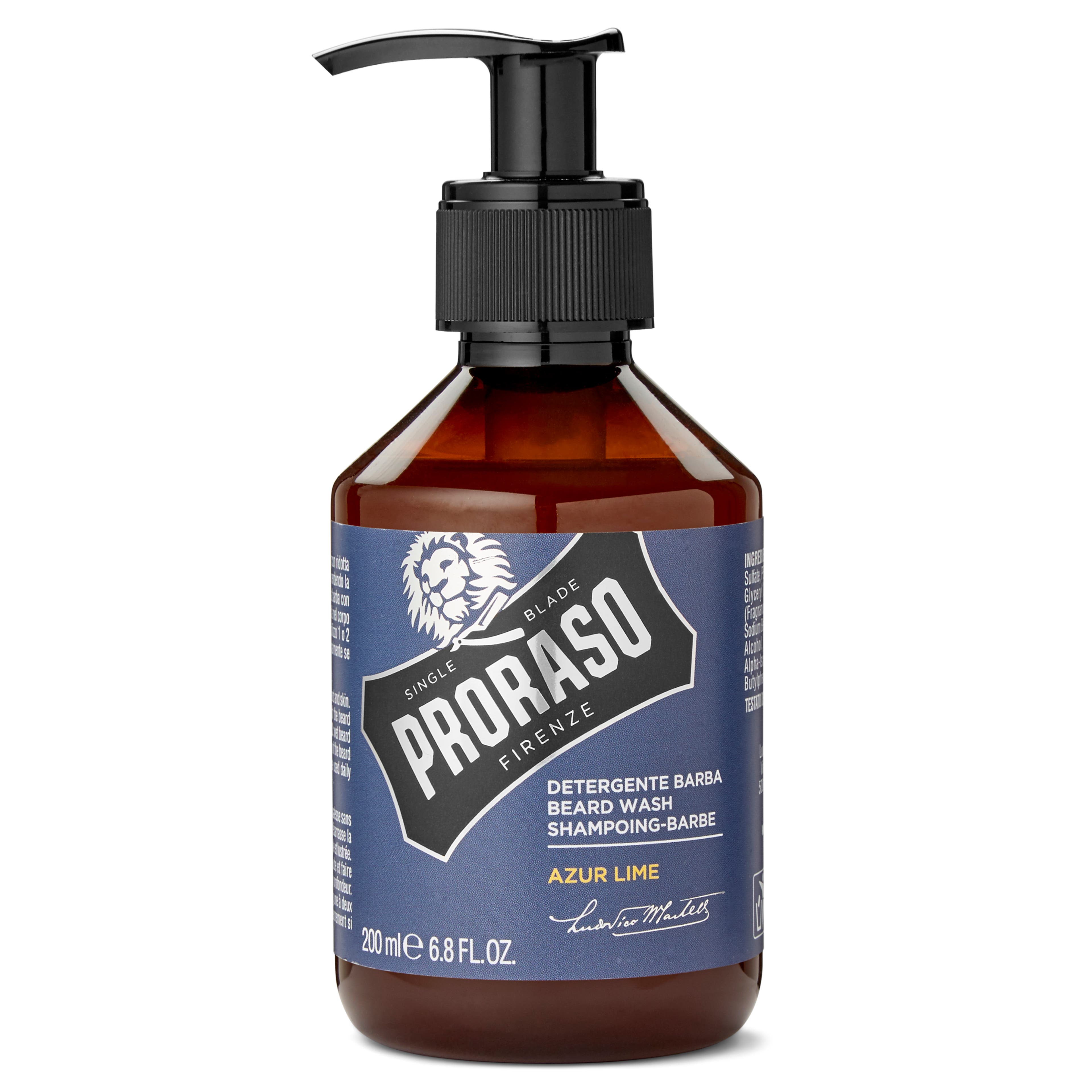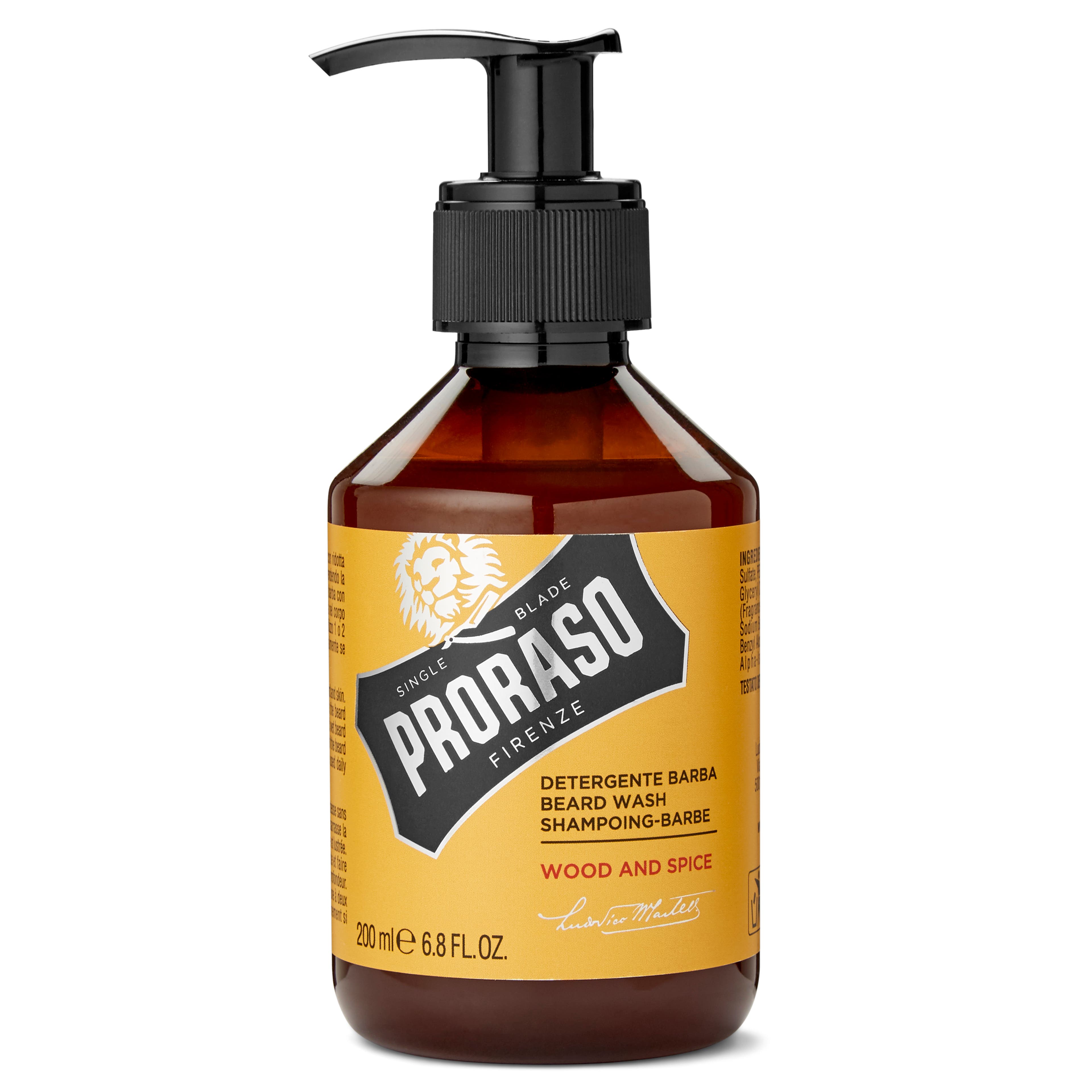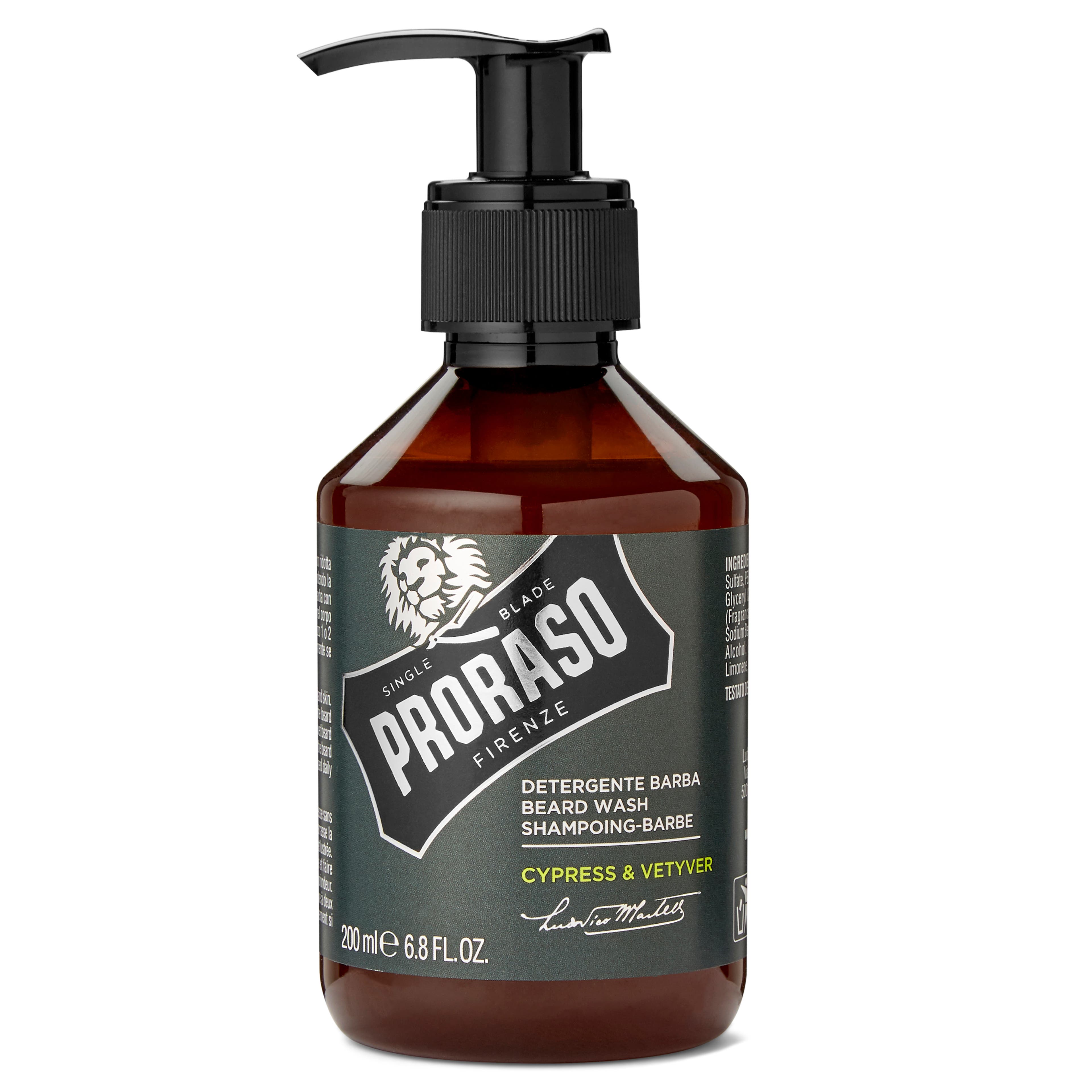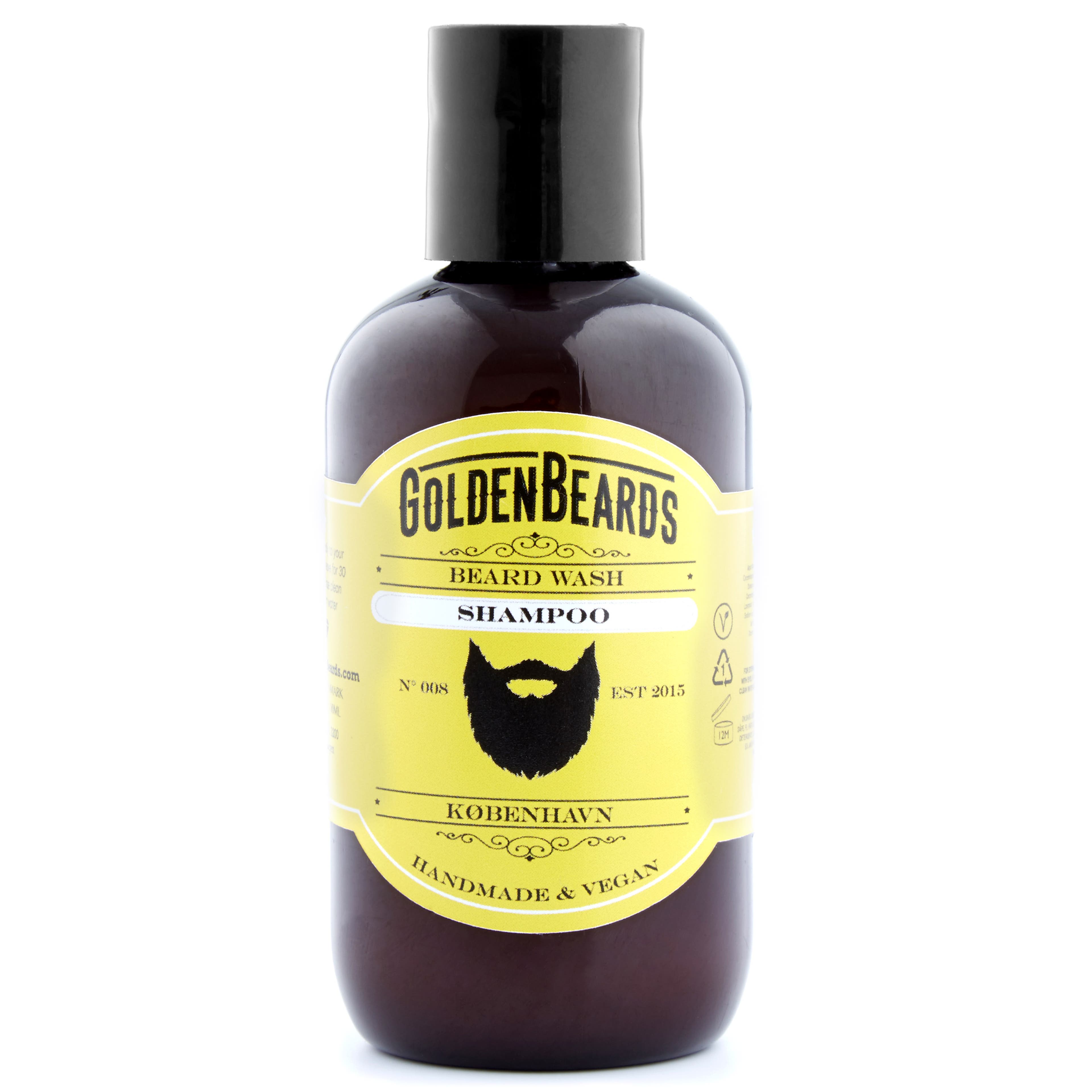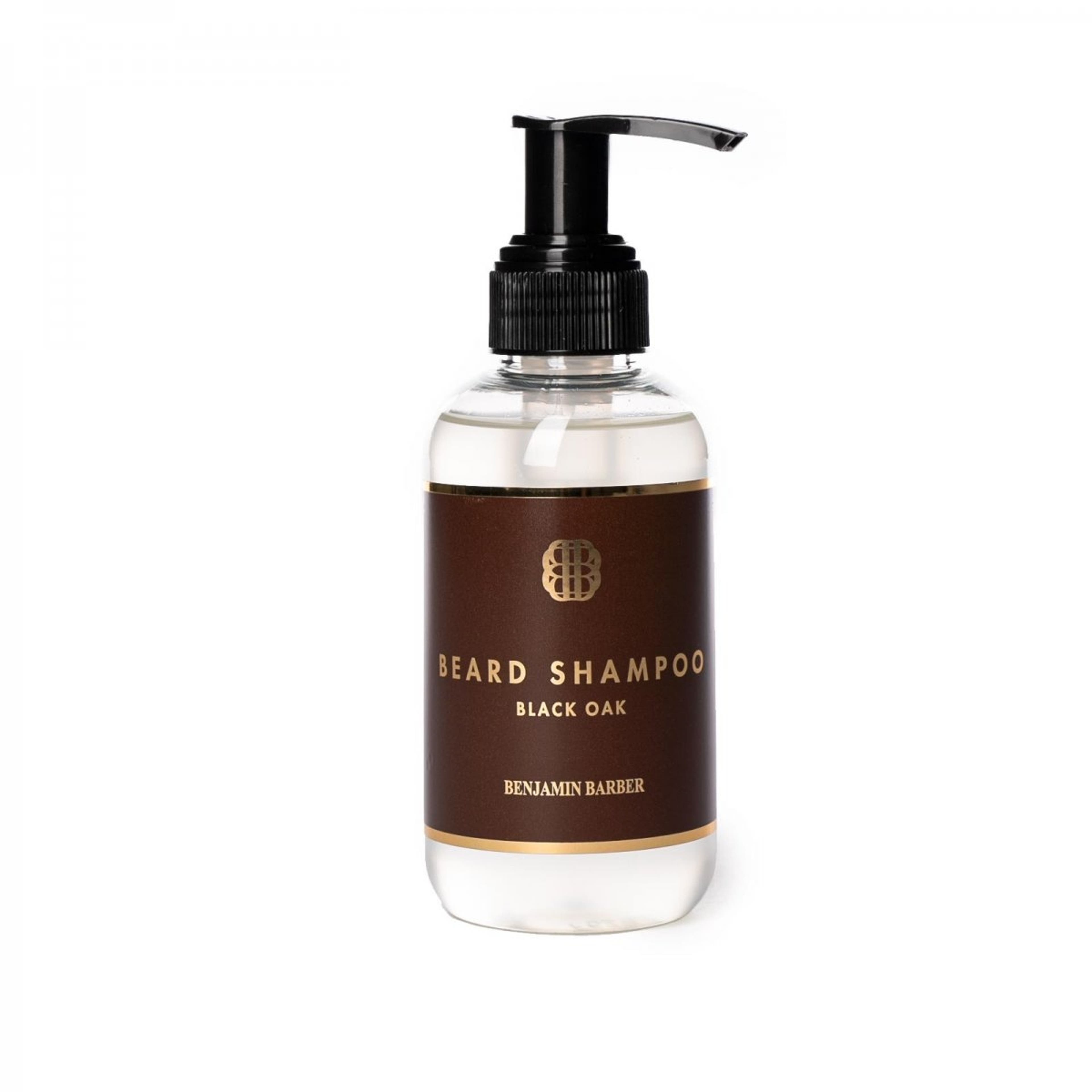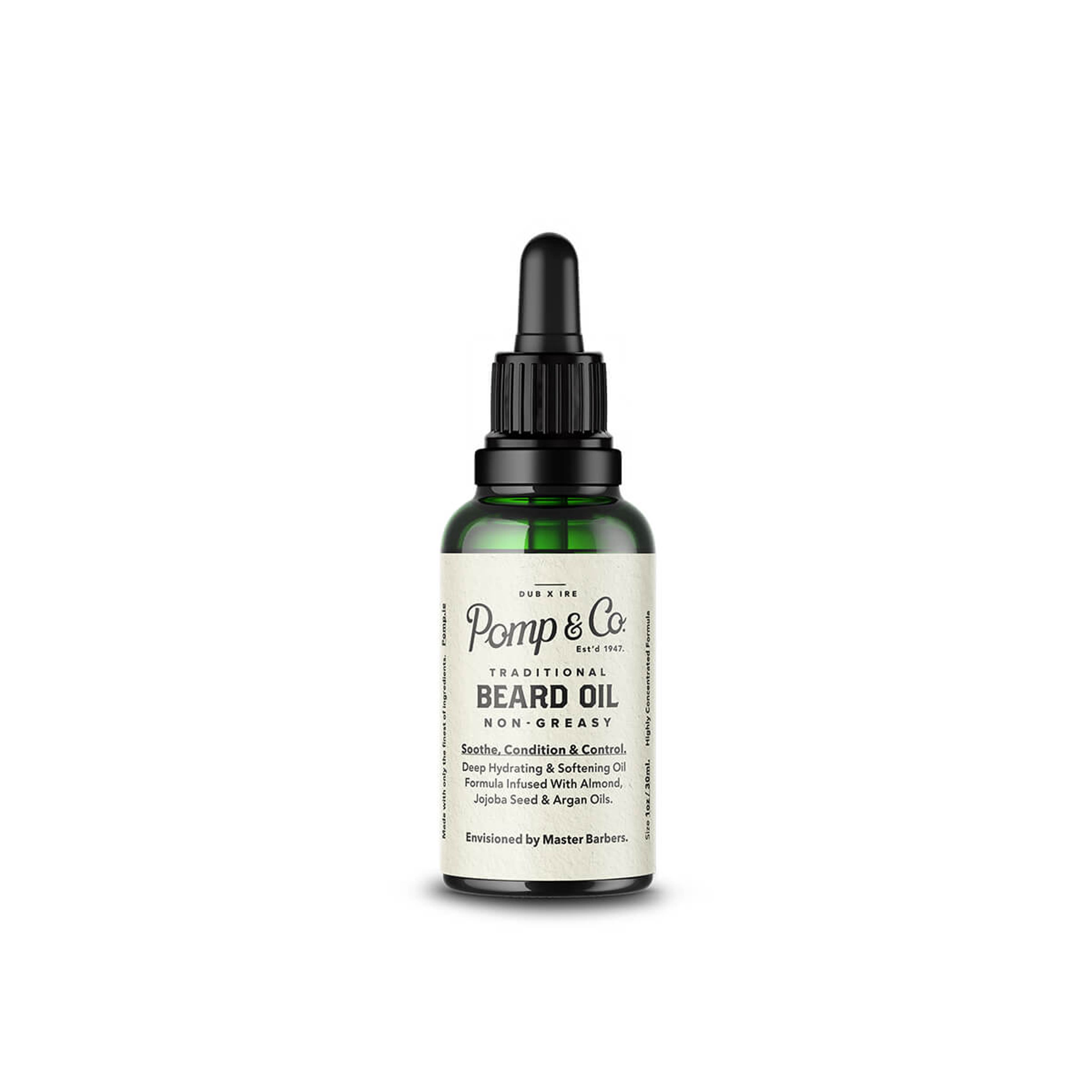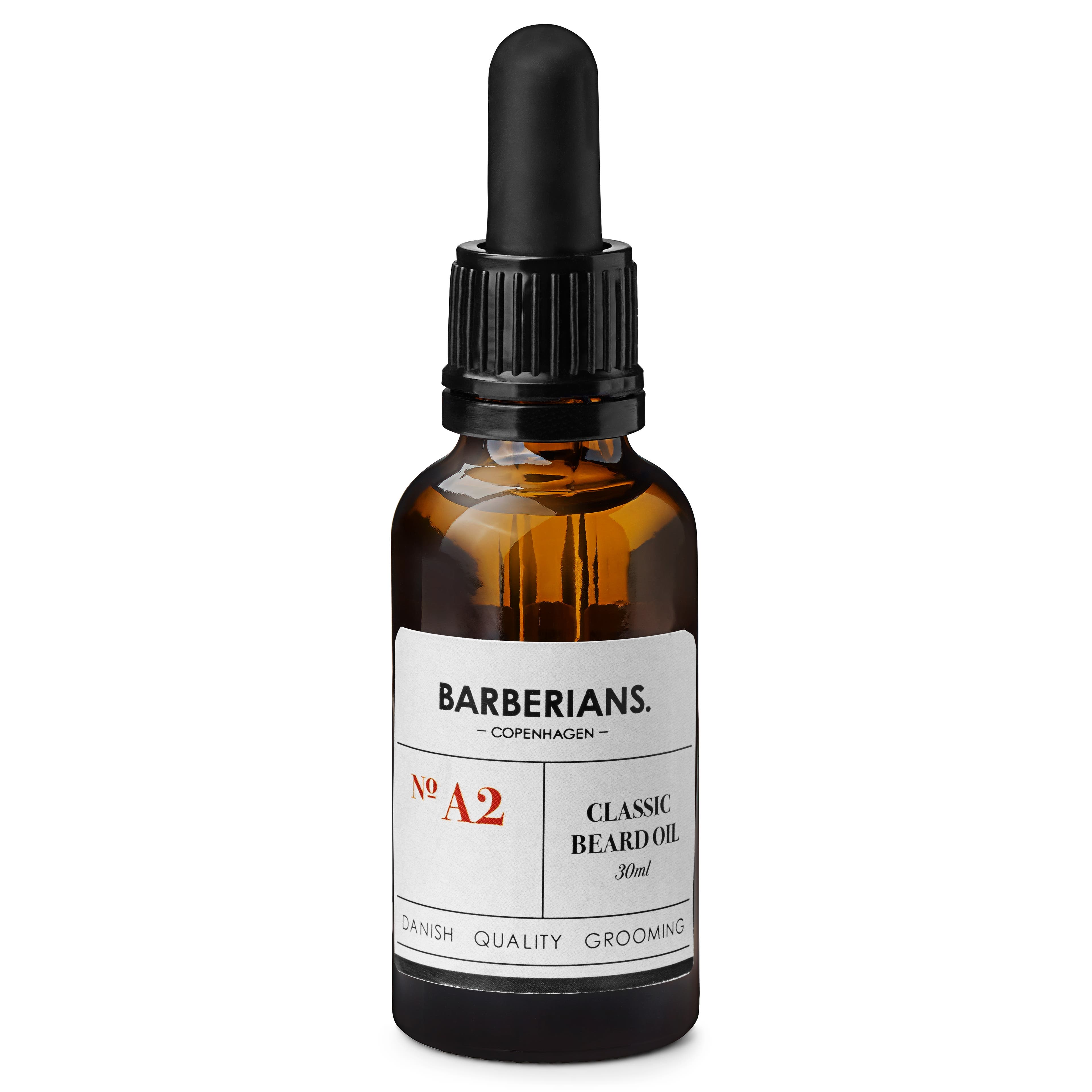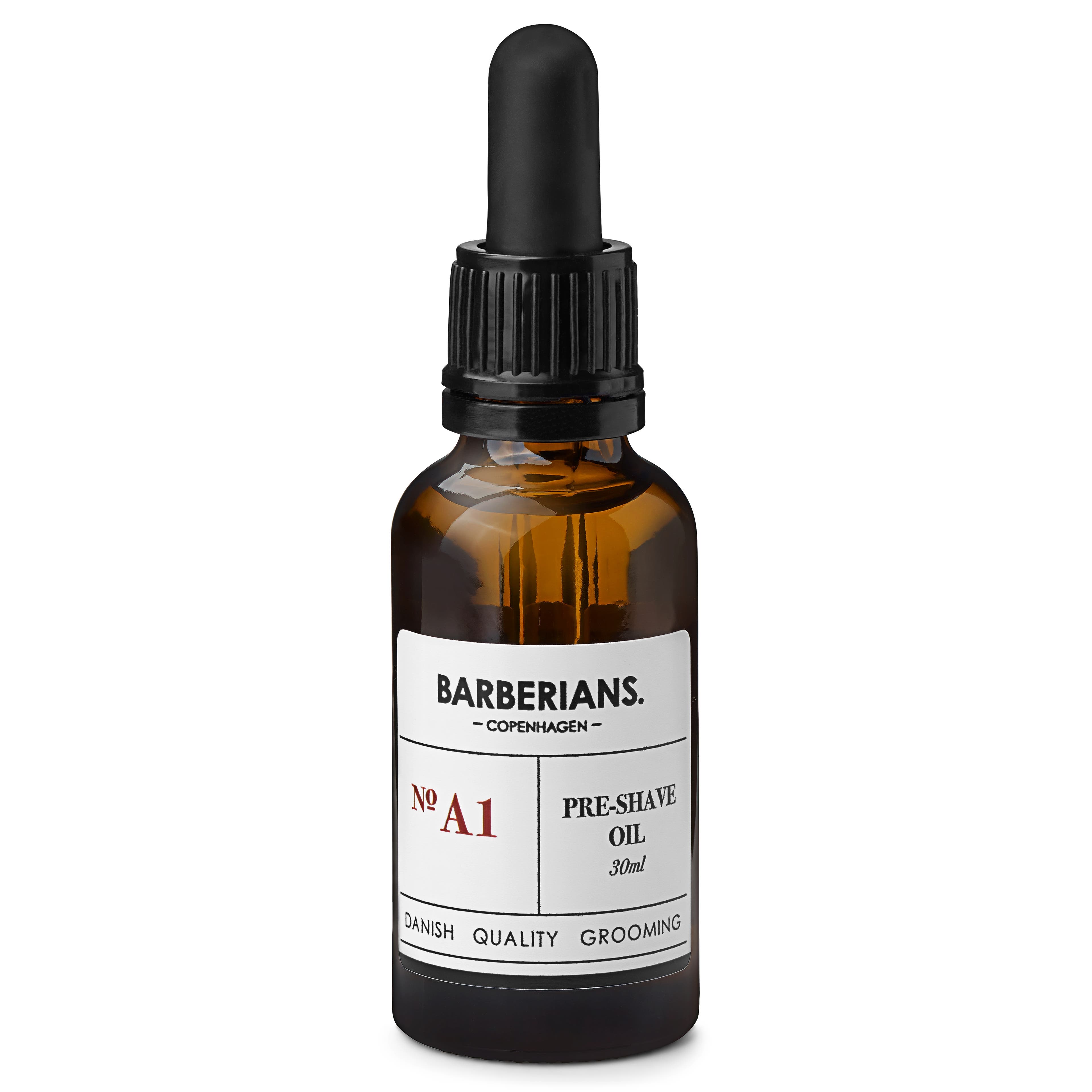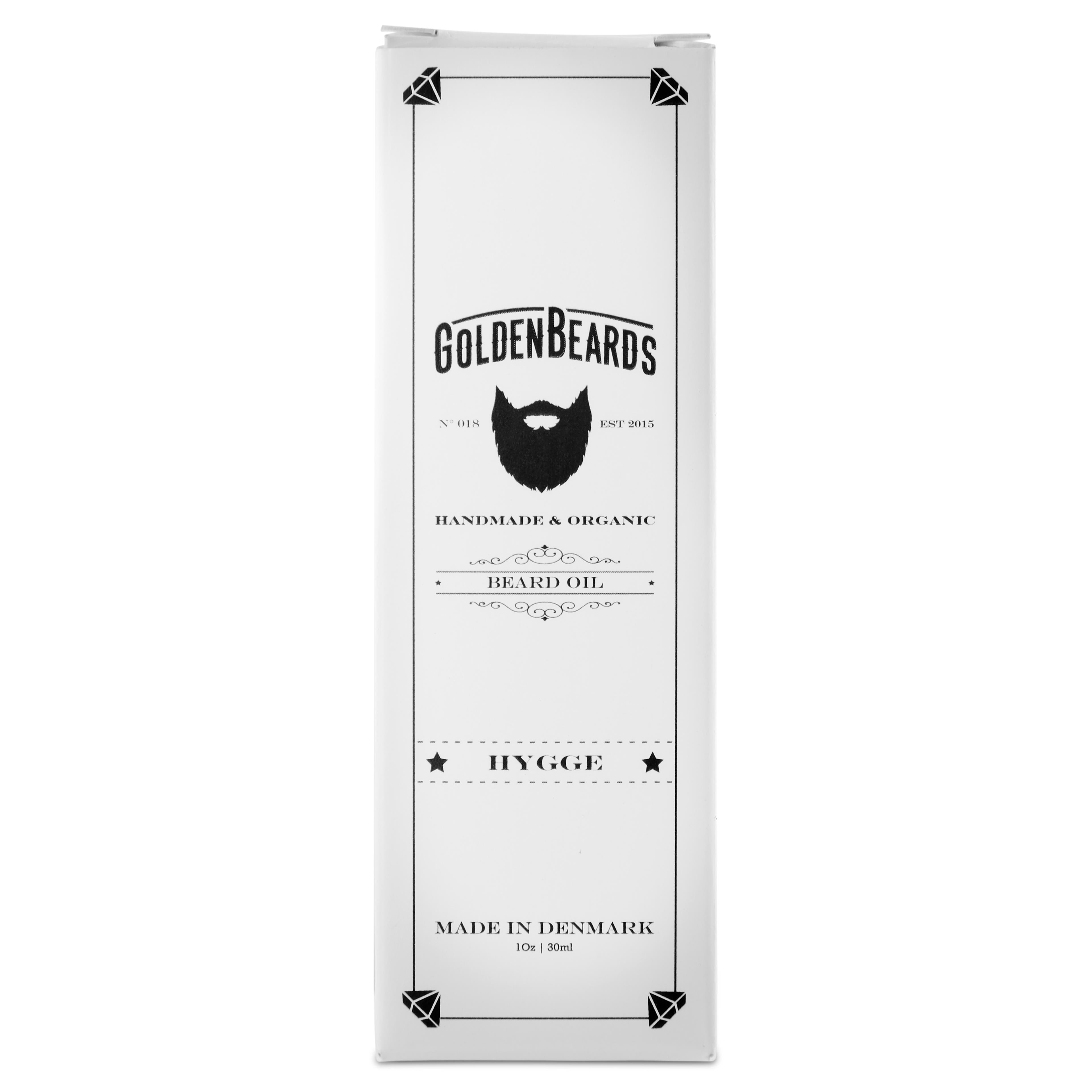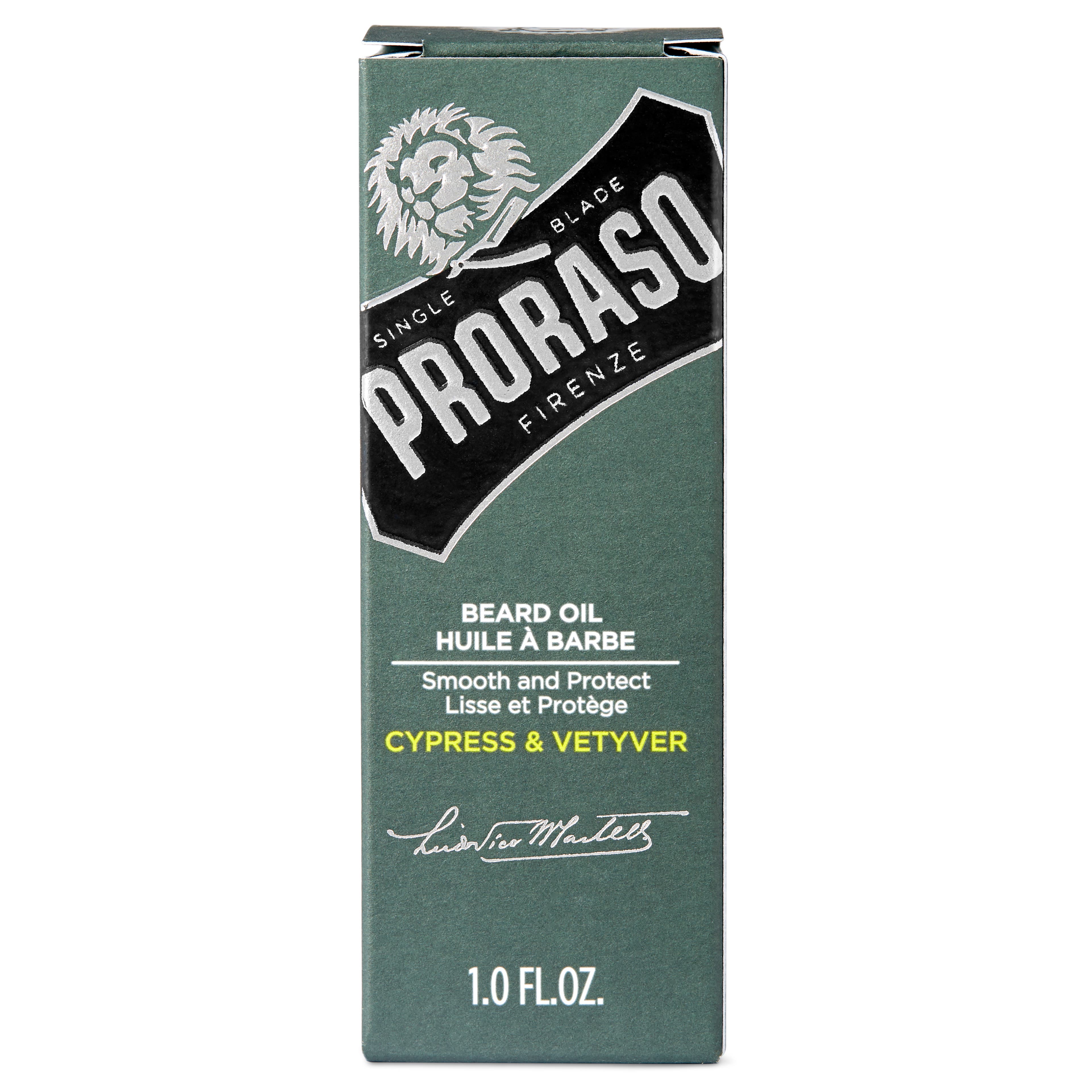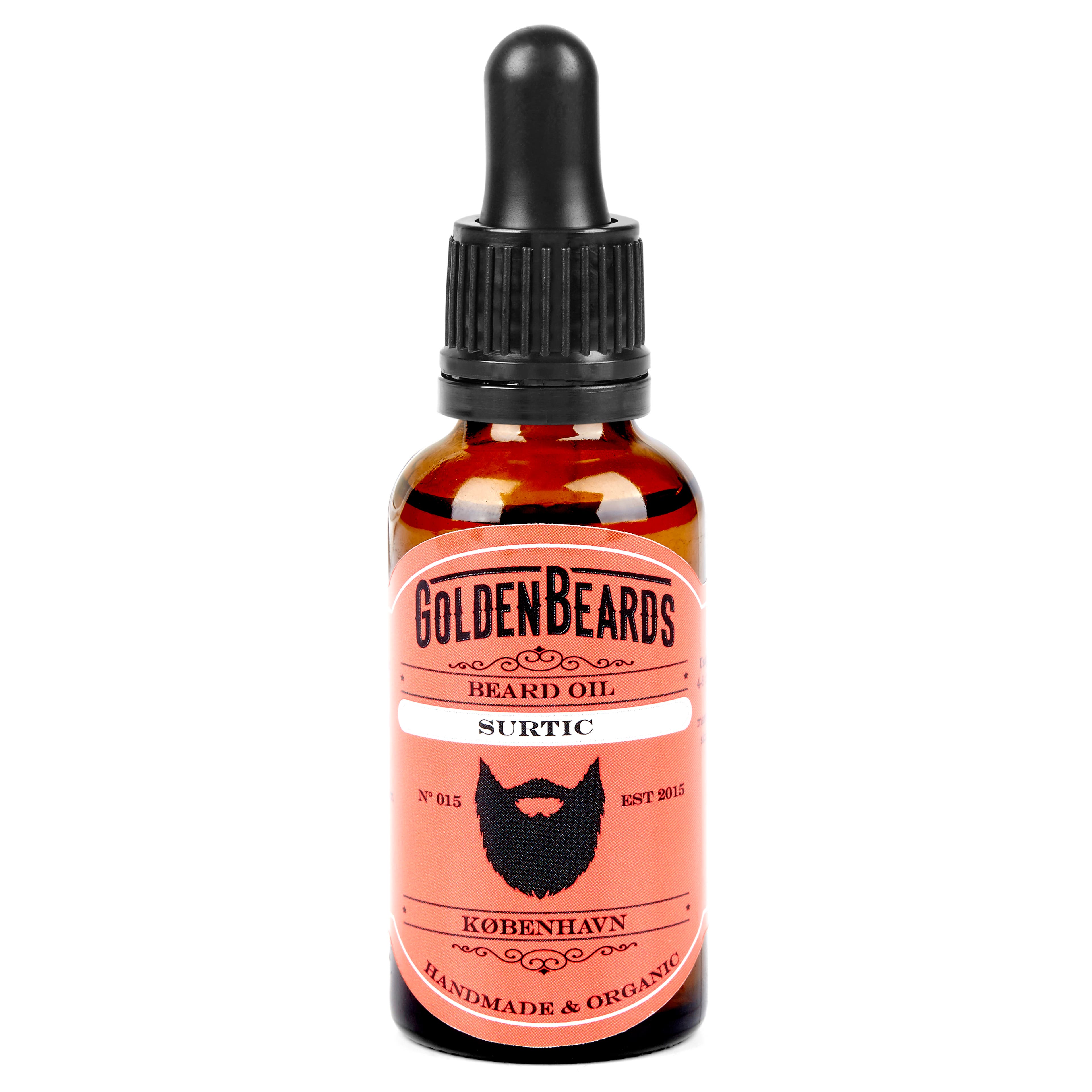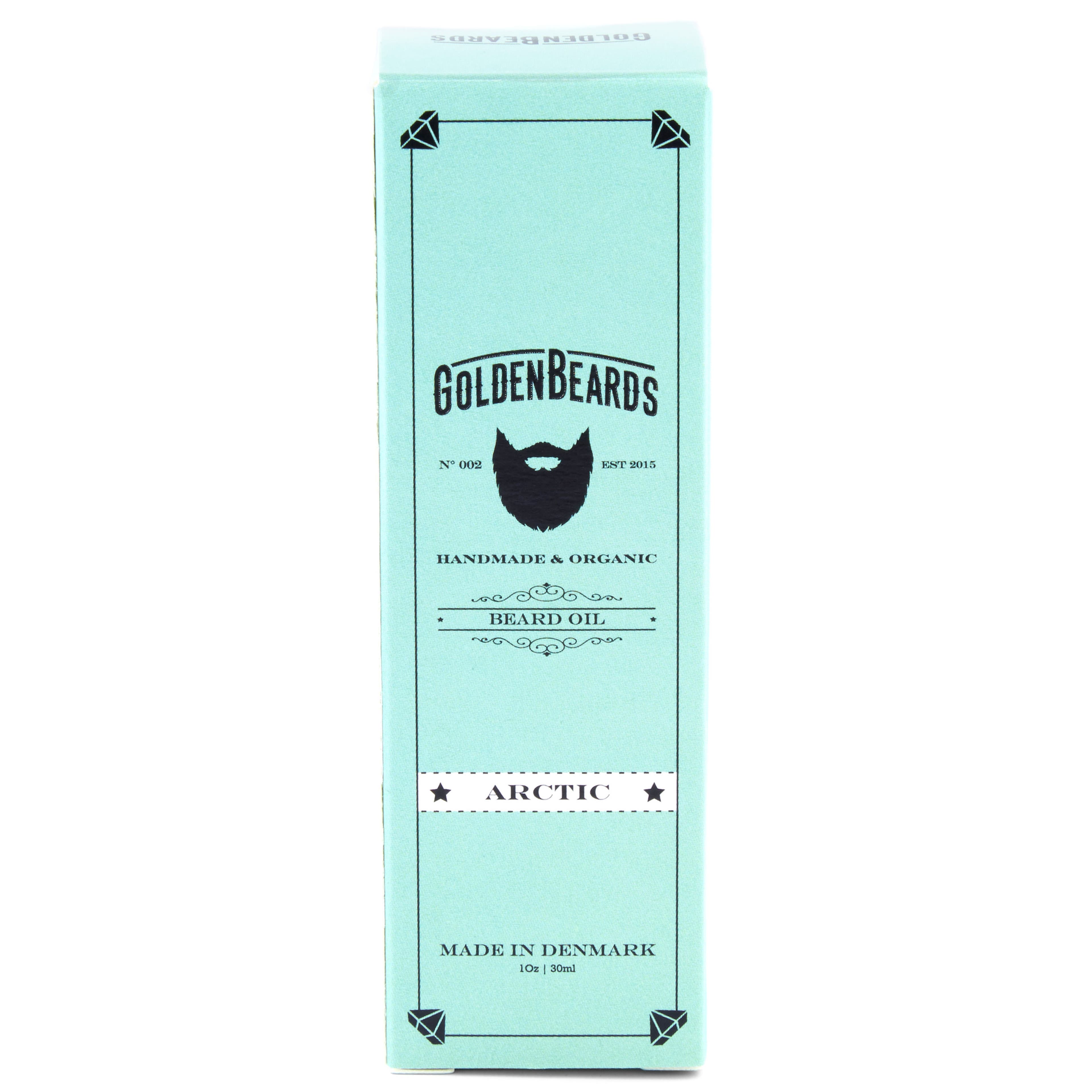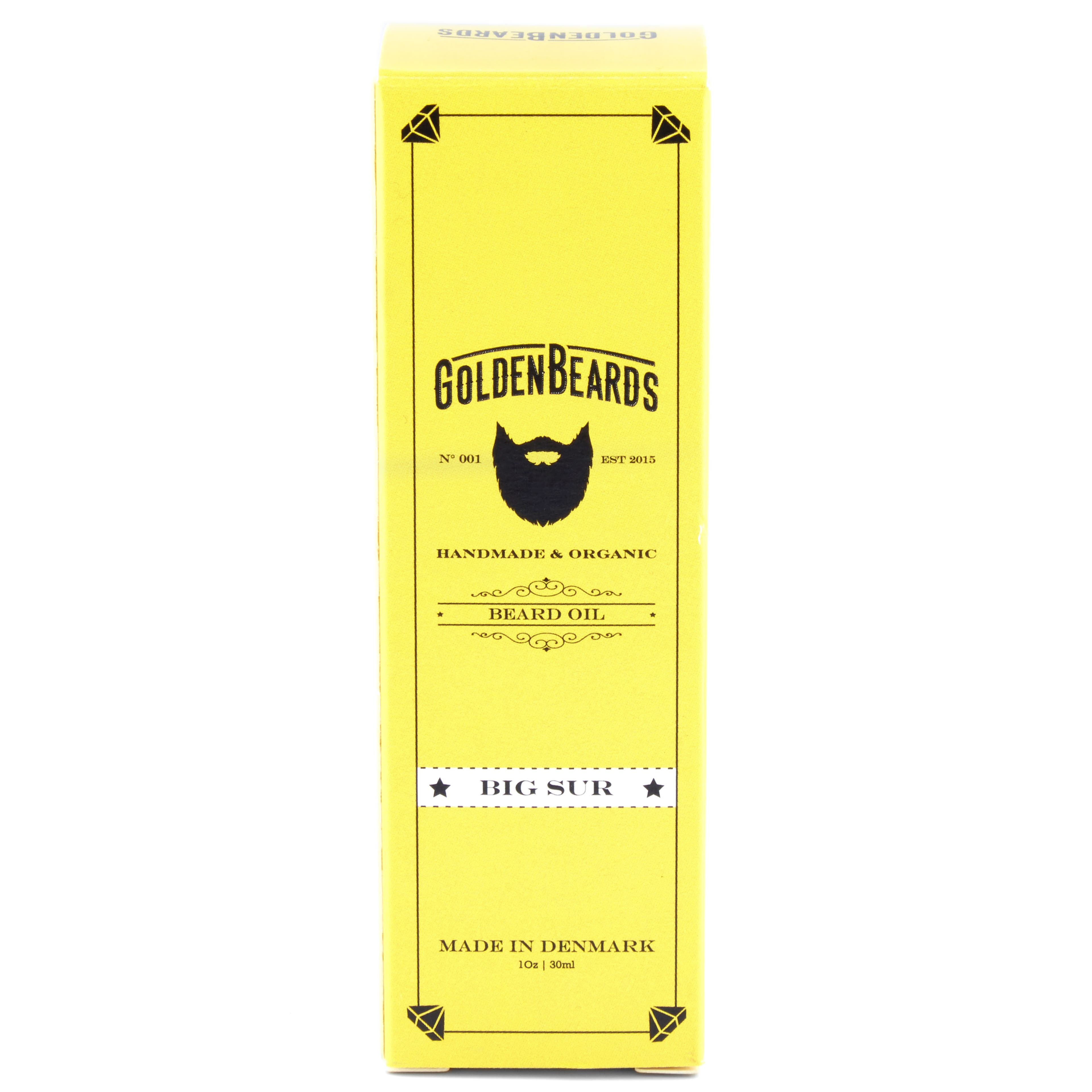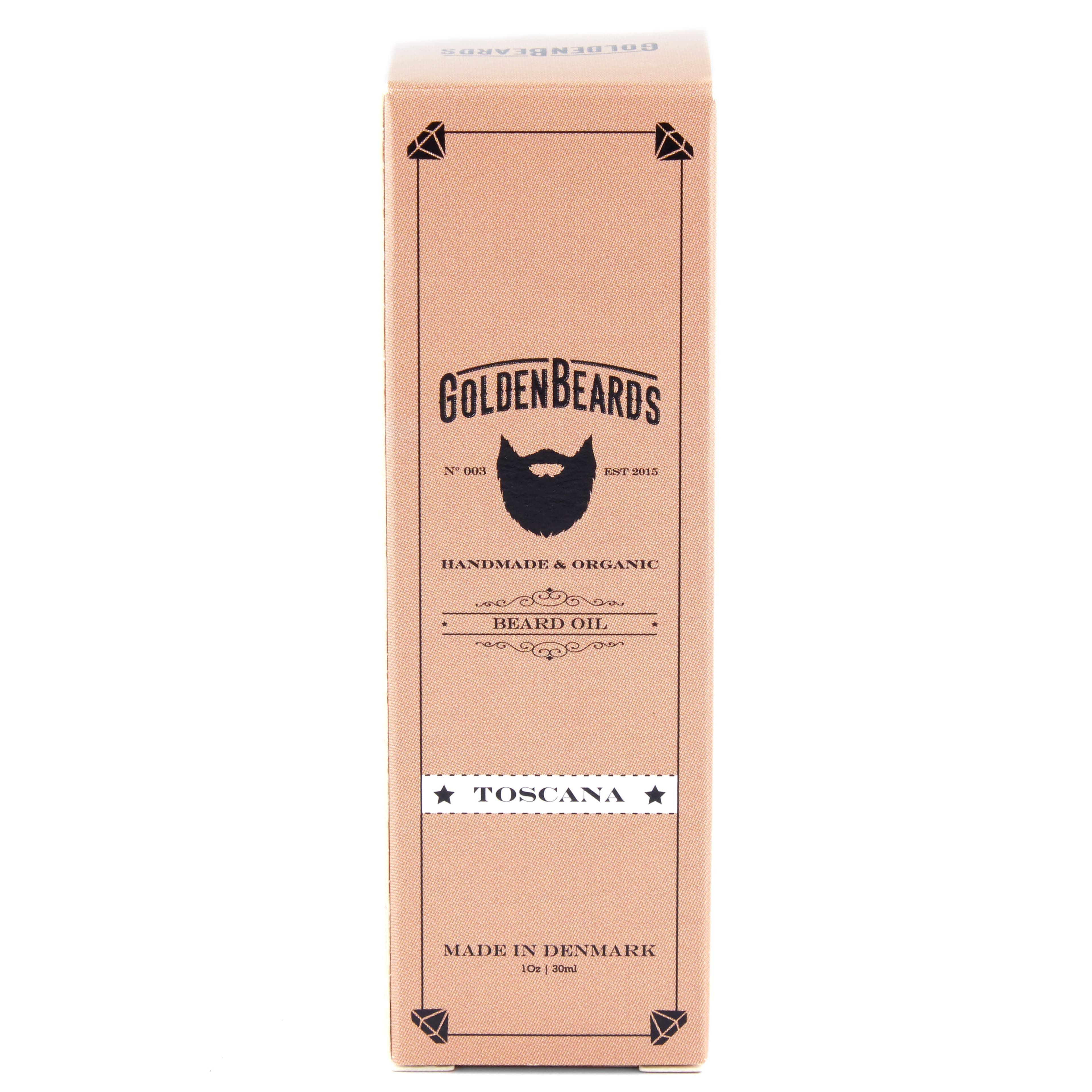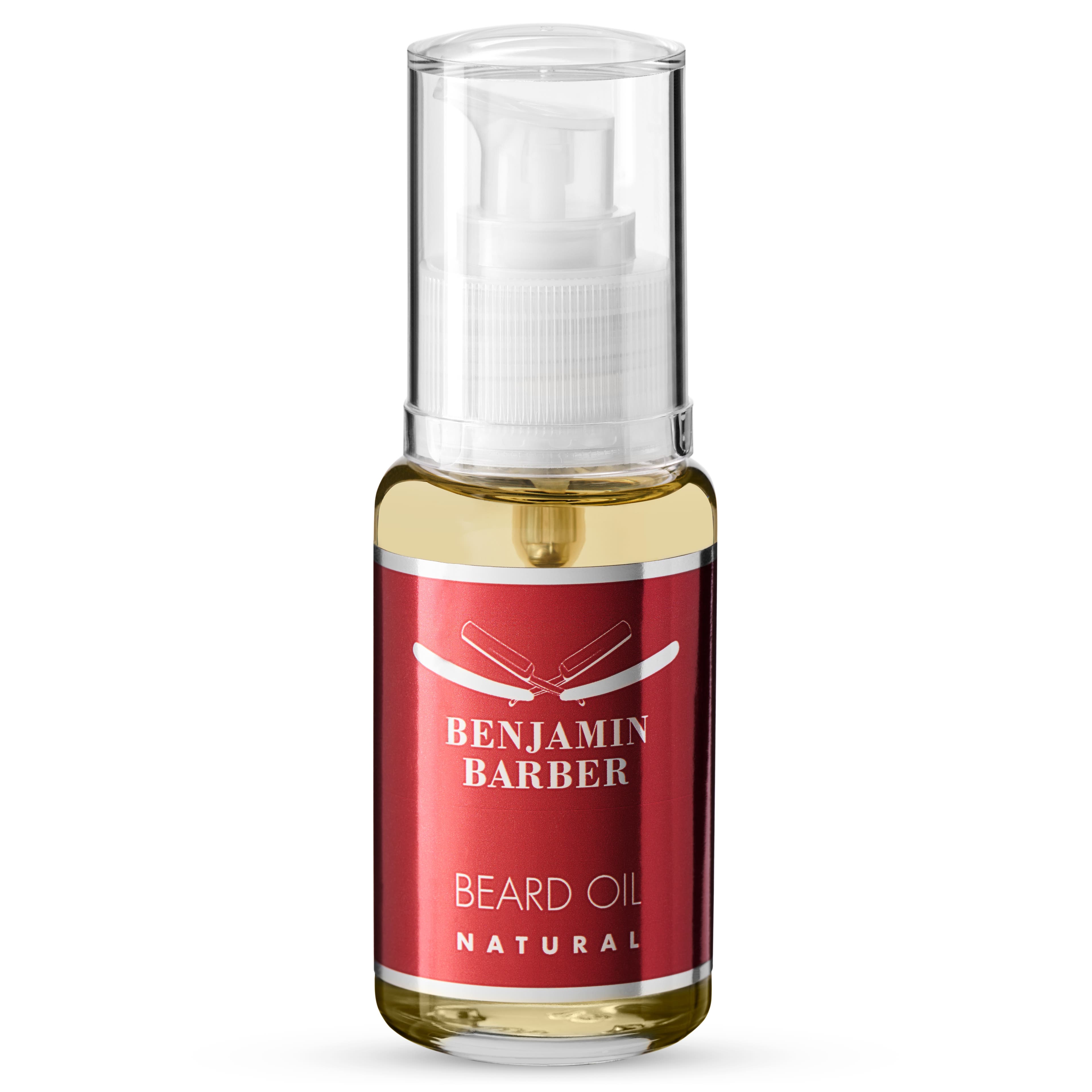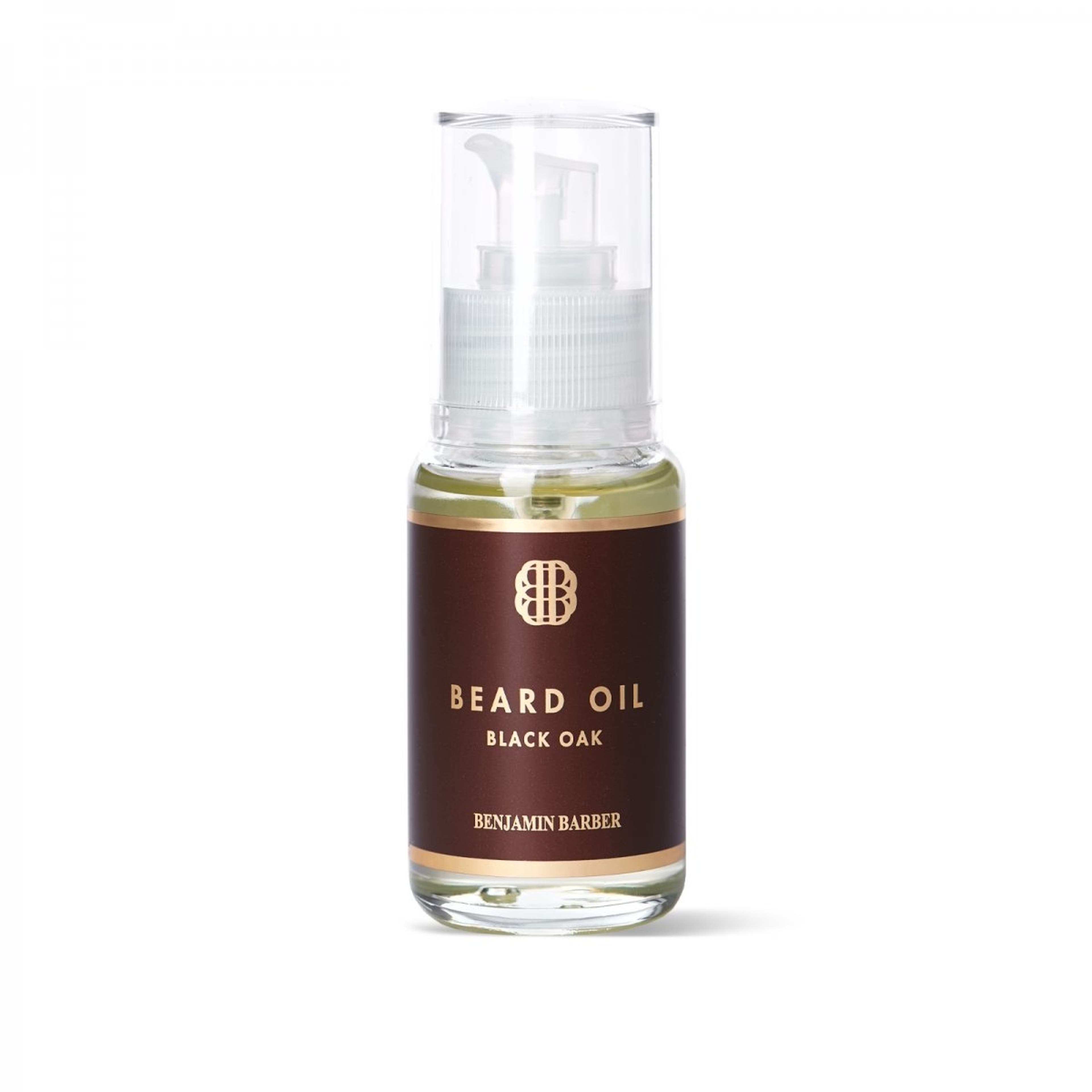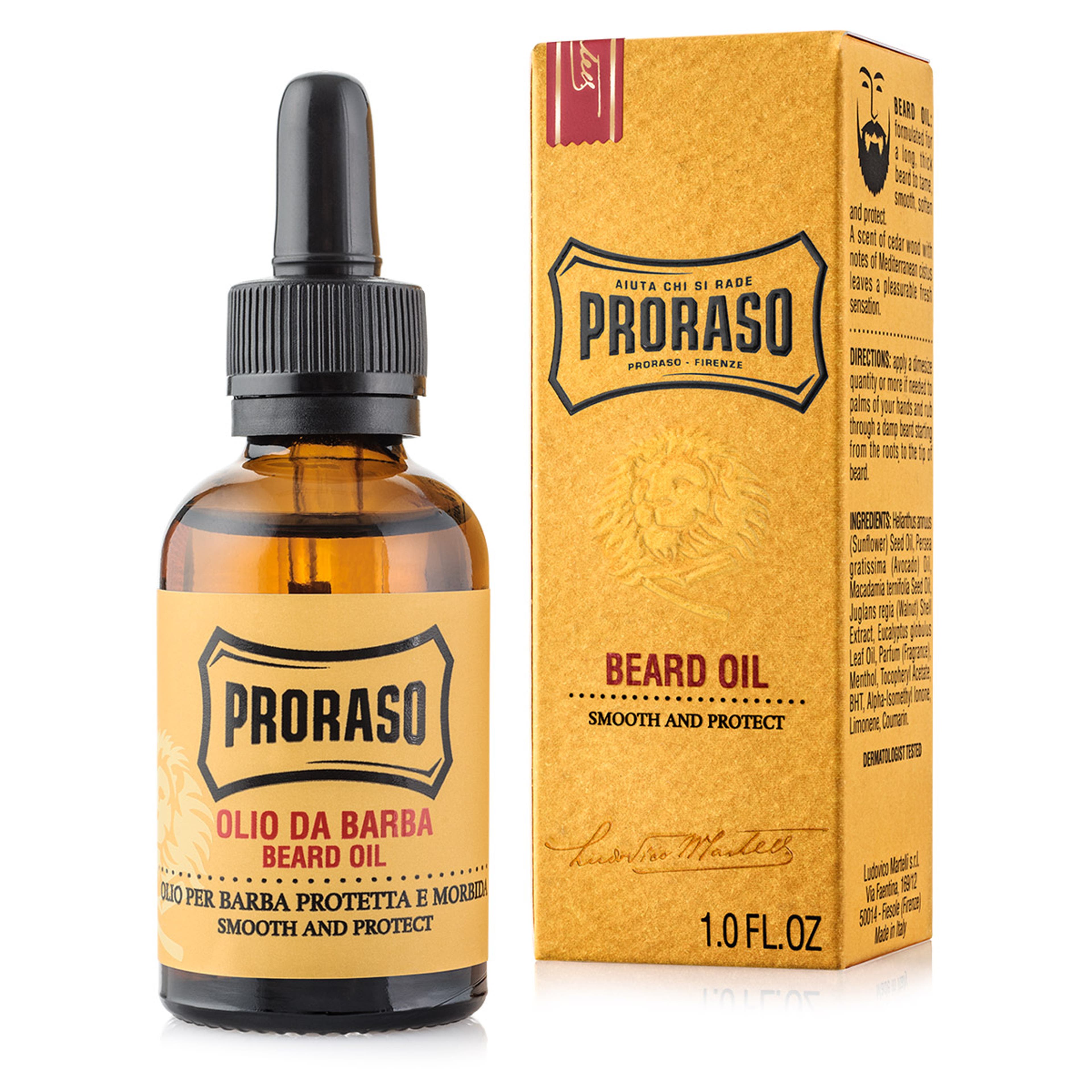Your At-Home Beard-Care Routine: 5 Quick Steps
If you’re growing a beard because you think it’s low maintenance… think again. While it does require work, a few simple steps in the right order will have yours the envy of others in no time.
Most of your morning runs on auto-pilot – brush, spit and rinse. Everything works fine and you know exactly how long it takes to get ready each morning.
Then one day you start growing a beard and your entire choreographed routine goes haywire. How do you get the most from your beard without spending extra time stressing over it? Is it beard oil first and then balm? And when do you comb anyway?
We’ve created 5 steps for an at-home beard care routine that’s easy to follow and quick to do. And the results… they’ll speak for themselves.
1. Brush Your Beard
The first step is to brush your beard (dry) before you shower.
Use a boar bristle brush to exfoliate and bring any beardruff to the surface. Brush slowly against and across the grain for best results. If you’re prone to dry skin and beardruff, you’ll see it settle on the tips of your bristles. But don’t worry.... this makes it easier to wash off in the shower.
Next, using a brush with soft ends on the bristles (preferably rubber) that won’t irritate your skin, gently rub the skin under your beard in a circular motion. This stimulates blood flow and the follicles. And it feels good.
2. Trim Your Beard
The second step, albeit one that doesn’t need to be done daily, is to trim your beard.
This isn’t about trimming your entire beard, but about keeping it clean-looking by trimming the mustache line and shaving the neck and upper cheeks.
If it’s time to trim your entire beard – or if you’re nervous about going at it alone – check with your local barber. These guys and gals are skilled artists who work wonders with your beard.
You may find this easier before showering because wet hair is longer than when dry. You might over-trim wet hair.
Whether using a trimmer or scissors, make sure your tools are clean and sharp. Hacking away at your beard with blunt instruments is as counterproductive as it sounds – instead of a neat cut, the hair gets broken off and you’re left with torn ends that could split.
Mustache Line
First, use clippers or scissors to get rid of any unwanted hair, particularly just under and around your nose. And… don’t be afraid of trimming the hair inside your nose either.
Next, comb your mustache straight down and remove any hair below your lip line. Hair that goes longer is a trap for lunch.

Neck & Upper Cheeks
The goal here is not to change the neck and upper cheek lines, but to get rid of unwanted hair outside of your beard.
Prep your face as you would for a normal clean shave but with less product so you see the lines underneath.
For best results, use a double-edged safety razor – multi-blade cartridges tend to clog up – to trace your beard line with short precise strokes. Pay extra attention to not cut into your beard. You could use an electric razor, but it won’t leave you as clean-shaven.
There’s really nothing you can do if you cut into your beard. Let the hair grow back naturally. Your neckline isn’t particularly visible anyway and hair tends to be less dense/long on your cheeks and grows back quite quickly.
Where Should my Neckline be?
Not too high!
There’s an unfortunate trend where guys shave off most of their neck beard, and it just curls under their jaw and stops. This makes you look like you have a double-chin.
There are 2 methods to find the proper neckline – place two fingers above your Adam’s apple. This is where the line should stop, then trace symmetrically around your neck.
Or retract your chin into your neck to give yourself a double-chin – your beard should follow the main fold.
Where Should my Cheek Lines be?
This varies depending on your style. For a full beard look, you’ll want this to go from your mid-ear to your mouth. Either in a straight line or with a slight curve.
3. Wash Your Beard
We’re sure we don’t have to preach the virtues of hygiene to you. What you may not realise is that your beard is prone to getting a lot dirtier than other parts of your body and requires extra attention.
Unlike hair, your beard is likely to be touched repeatedly throughout the day – by yourself as you ponder life’s great mysteries and by your significant other – which means that all the germs from door handles, car steering wheels and computer keyboards are promptly woven into your facial hair.
And don’t forget the food and drink that gets left on your whiskers no matter how careful you are. Taco Tuesdays are the worst.
Use a mild, natural shampoo and lather up. Be sure you cover the entire beard. Reduce the water temperature for this step to lukewarm or cool – hot water dries your skin and causes dandruff.
Make sure you pat your beard dry as opposed to vigorously toweling it dry to prevent damage.
If you’re going to blow-dry your hair, don’t use hot air as this dries out each strand right to the base and makes them brittle and likely to split. Use the coolest setting available or pat dry with a towel.
4. Use Beard Oils & Balms
After showering take your favourite beard oil or beard balm and thoroughly massage it into your beard.
Unlike thick moisturizing cream, oil is light enough to go through the hair and coat your skin, leaving it hydrated and protected.
These products lock moisture into your hair and hydrate your skin as well.
How to Apply Beard Oil
You need less oil than you think.
For anything but the longest beard, 8-10 drops will do. For pump bottles, this is about one pump. For other oil bottles, this is about 3 finger pads.
- Cover the pads of your index, middle and ring fingers on one hand (just the pad, not the whole end of your finger).
- Once the oil is on your fingertips, put it on both hands and gently massage it into your beard. Try to massage down to the skin without scraping.
How to Use Beard Balm
Balm adds an element of direction to your beard and helps shape it.
- First, heat your hands by rubbing them together.
- Use about half a fingernail worth of balm and spread it on your hands.
- Apply by running your fingers through the hair.
5. Brush & Style Your Beard
Once your oil or balm is applied, take your boar beard brush and spread the product evenly across the beard.
Use gentle, long strokes, going against the grain and side-to-side to make sure everything is covered.
You’re nearly at the end! The last step is to shape your beard how you like it.
At this point, use a small ball of mustache wax to keep your mustache in place.
While you need to brush or comb your beard to stop it looking like a scraggly mess, there’s a tendency to overdo it, especially among the recently bearded.
Even the longest of beards doesn’t need to be brushed more than 3-4 times per day. Make sure the teeth on your comb are sufficiently spaced so as not to tug your beard and hasten split ends.
There you go. You’re looking good and ready to conquer the world. This can seem daunting at first, but the entire process adds less than 2 minutes to your morning routine.
And the results are unbelievable in how much better your beard will look from following the steps above.
In parting, here are some final tips to help on your journey to a majestic manly beard.
- Leave it alone. The more you touch, tug and pull on your beard, the unhealthier it will be and look.
- Don’t over-brush it.
- Beard oil is your beard’s best friend.
- Shaving doesn’t accelerate growth. The only proven way to get thicker growth is by optimizing your health, particularly sleep, nutrition and hormones. Use a soft brush to stimulate the follicles.
You Asked – We Answered
How do I get rid of beardruff?
Feared by bearded bros everywhere, beardruff instantly takes a carefully-groomed gent and turns him into a dirty caveman.
The good news is that, unlike regular old scalp dandruff which can be constantly visible on the sides of your head, beardruff only tends to show up when your beard is disturbed, leaving a faint dusting of dead skin and other unappealing specks on your chest.
So the first thing to do when beardruff strikes is simple, obvious, but deceptively difficult.
Stop. Playing. With. Your. Beard.
The second thing is to realise that beardruff is usually dry skin under your facial fluff. While beards protect your delicate cheeks from the sun, wind and rain, they put up an effective barrier to a basic skin-care regime.
If you’re following our recommended grooming routine as above, then beardruff shouldn’t be too much of an issue for you. But if it does set in, here are the vital points to get your beard back to its happy flake-free state.
- Exfoliate pre-shower with a boar bristle brush
- Use a
quality face or beard wash 2-3x per week - Use your
favourite beard oil post-shower to lock moisture in and prevent dryness
If your beardruff persists (think months not days), then the problem might be more serious and you should consult a dermatologist to ensure you don’t have a skin condition.
One last tip – hot showers dry out your skin and cause flakiness. If beardruff is a recurring issue, consider turning the temperature down a few degrees and using lukewarm water to wash your hair and beard instead.
This block is deleted,Remove this placeholderWhy do I have split ends and how can I repair and prevent them?
Split ends in the beard are a problem – more so as your beard grows longer. They make your beard look frizzy and unkempt… which probably isn’t the look you’re going for. Beyond looking messy, you’ll know you have split ends when your beard suddenly starts to feel rough and scratchy.
There are several reasons for split-ends, but they all come down to weak or dry hair. Diagnozing and fixing the underlying cause takes time, so don’t be disappointed if the situation isn’t remedied overnight.
The main reasons for beard split ends are:
- Over-combing
- Blow-drying (especially with hot air)
- Trimming with blunt tools
The first thing to do is to trim your beard and remove them. This drastically reduces the likelihood they’ll spread further down the hair shaft, which turns a minor annoyance into an almost irreparable catastrophe.
The second thing is to go back to the basics of beard care and ensure proper nourishment during your grooming routine using beard oil and/or balm.
This block is deleted,Remove this placeholderHow do I make my beard softer?
A proper grooming routine should keep your beard soft and fluffy.
This block is deleted,Remove this placeholderWhich beard brush should I use for coarse, stiff hair?
When combing or brushing your beard, you want to get rid of tangles and knots as gently as possible.
Avoid tugging and yanking at all costs – it damages your beard for a long time.
If you have coarse, stiff hair, the first thing to do is to use a proper grooming routine to soften them out. Stiff hair is unhealthy hair.
You’ll still need to brush them, but use a wide-toothed comb and gently brush to tease through the knots.
This block is deleted,Remove this placeholderShould I use a brush or a comb for my beard and mustache?
Use either or both.
Boar bristle brushes are good to ensure an even distribution of oils and balms.
Combs work well to give direction and get rid of tangles. Make sure the teeth reach through to your cheeks.
For mustaches, get a mini mustache comb. A normal brush can be too large.
This block is deleted,Remove this placeholderWhich products make my beard softer and easier to style?
Your beard’s best friend is beard oil. Regular application locks in moisture and tames your beard, giving you soft, smooth locks.
Use a mild shampoo to clean your beard in the shower for best results.
This block is deleted,Remove this placeholderWhat is the difference between oil, balm and wax for my beard?
The difference between these products is either in terms of nourishment or directional hold.
Beard oil contains natural carrier oils to give your skin and bristles the protection and nourishment needed.
Beard balm also contains these oils but adds an element of directional hold (like hair gel) so that you can style your beard and it keeps its shape.
Waxes are generally used for your mustache, either on its own or when you have a beard. These are like hair wax or gel and keep your mustache in shape throughout the day. Wax often has a stronger hold than balms.
This block is deleted,Remove this placeholderCan I use beard oil if I have sensitive skin?
Yes. Double-check the list of ingredients and choose one made without synthetics. You may want to avoid perfumes as these can often dry out the skin.
This block is deleted,Remove this placeholderCan people without beards use beard oil?
Yes.
Beard oil is an effective way to moisturize your skin and can be used clean-shaven or with light stubble.
Apply it as you would with a beard but with less quantity so you don’t look greasy.
This block is deleted,Remove this placeholderDo I need to condition my beard? How many times a week?
You can either condition your beard separately or use a co-wash with a conditioning element in when you wash your beard.
Conditioner helps soften and protect your beard. We recommend conditioning your beard 2 times a week.
This block is deleted,Remove this placeholderIf I use a balm or wax, should I use oil? Which order should I use?
Beard balms tend to have carrier and essential oils in them already, so you won’t need to use oil in addition to them. If your skin is dry, use oil first and then a beard balm.
Our suggestion and that from the Dashtis is to always use beard oil – it’s the one thing you can not skip.
Waxes don’t contain oils and are purely for directional hold. You should apply wax after using oil as normal.
This block is deleted,Remove this placeholder
